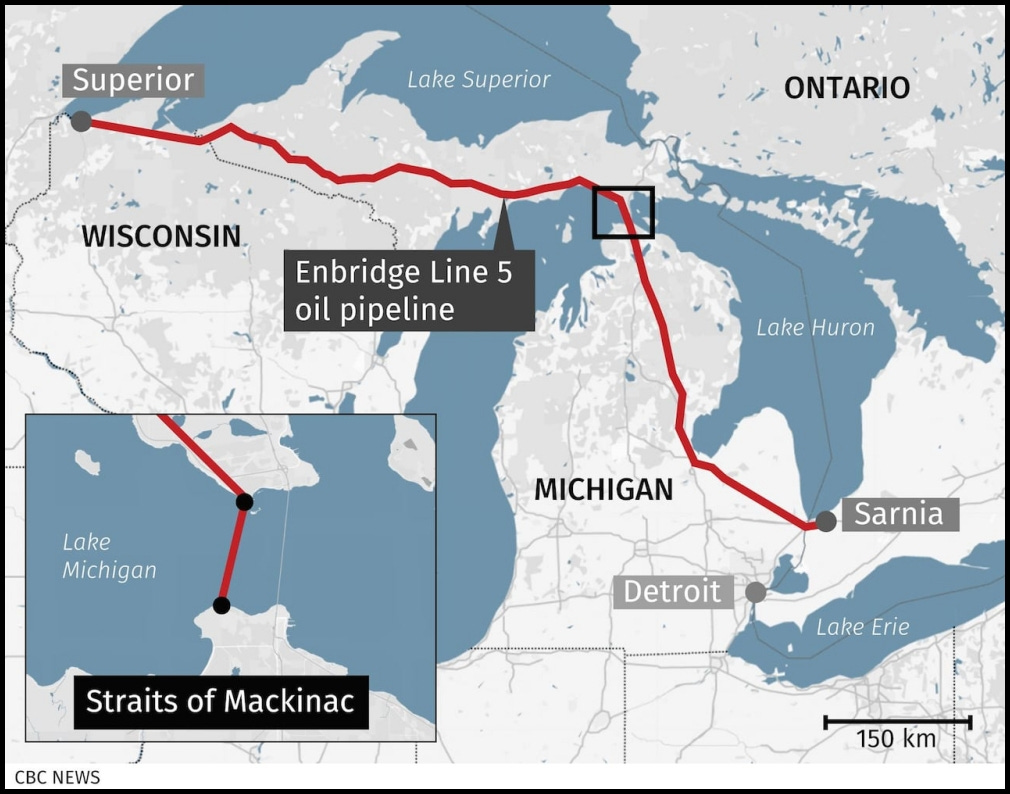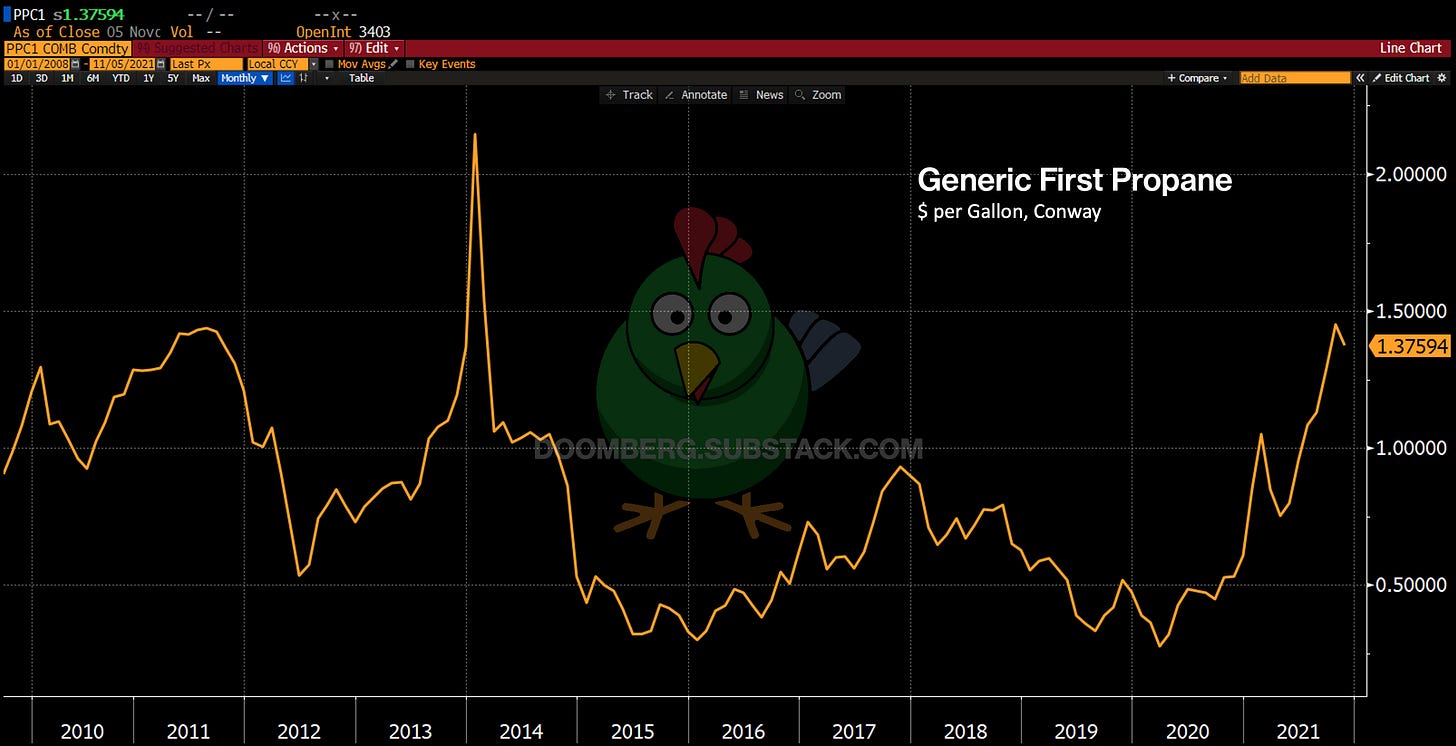“At one point, people are going to have to realize that maybe I know what I’m doing.” – Justin Trudeau
The Upper Peninsula (UP) of Michigan is some of the most beautiful country in the United States. Long considered the premiere summer playground for vacationing Midwesterners, the UP is characterized by stunning forests, spectacular lakes, rolling hills, and largely unblemished nature. The population density of the UP is only 18 people per square mile, compared to over 27,000 in New York City. Having recently driven through both, there’s simply no comparison. New York is overflowing with rotting garbage on the sidewalks, while the UP is a slice of heaven on earth.
Except for the whole snow thing. With Lake Superior to the north, Lake Huron to the southeast, and Lake Michigan to the southwest, winters in the UP can be brutal. Some areas immediately south of Lake Superior see 200-300 inches of snow each winter – yes, 20 feet or more. 20 feet! It takes a hardy person to live in the UP year-round.
One curious thing you notice as you drive around the UP is just how many homes have giant propane tanks in their yards. Able to hold 400 gallons and usually painted white, these unsightly cylinders dot the landscape with surprising regularity.
Propane is an impurity of wet natural gas, a key component of what’s known as natural gas liquids. It is also a byproduct of petroleum refining. It can be cracked to produce propylene, which is then used to make all manner of useful stuff in modern society. It can also be burned for heat, like one does in the backyard barbeque or to warm a rural home.
Indeed, more homes in Michigan use propane for heat than any other state in the country. This is especially pronounced in the UP, where residential propane has a market penetration exceeding 25% in some counties. With 20 feet of snow a possibility, how one heats their home becomes a viscerally important thing. The crack graphics team at Doomberg made this handy illustration that shows residential propane market share by county in the UP.
With a population of only 300,000 people, why should you care how these people heat their homes? As it turns out, propane in Michigan is at the center of a titanic struggle between environmentalists and the fossil fuel industry, and the result of that struggle could substantially alter the course of our energy policy for decades to come. It is not an exaggeration to say the battle over Line 5 is the most important confrontation since the proposed Keystone Pipeline project – and most of you have probably never even heard of it.
Line 5 is an oil pipeline that runs from Superior, Wisconsin to Sarnia, Ontario, passing through Michigan along the way. Constructed nearly 70 years ago by Bechtel, the pipeline is currently operated by Enbridge and has an excellent safety record. Day after day, it delivers 540,000 barrels of oil without incident – a mixture of synthetic crude, natural gas liquids, sweet crude, and light sour crude. To put this number into context, the US uses about 18 million barrels of oil a day in total. Half of Michigan’s and two-thirds of the UP’s propane needs are met by processing materials derived from Line 5. Line 5 is big and important. It is also extremely controversial.
There are two main problems with Line 5. The first is that for a four-mile stretch it runs under the Straits of Mackinac, which connect Lake Michigan to Lake Huron. Should a catastrophic leak occur, the pipeline could contaminate priceless shorelines and potentially threaten the Great Lakes themselves, which hold some 20% of the total freshwater on earth. The second is that Enbridge had a significant (but unrelated) pipeline spill in Michigan back in 2010. Known as the Kalamazoo River oil spill, the incident resulted in significant local environmental damage. For a period of 17 hours, the company struggled to understand that a leak was even occurring, unwilling to believe what its own sensors were indicating. This slow response exacerbated the damage and crushed Enbridge’s credibility with local authorities.
There’s a direct line from that incident to the major push by environmentalists to proactively shutter Line 5 today. Unlike opposition to the Keystone Pipeline, a project which was never completed, Line 5 is a preexisting critical artery of the North American energy infrastructure. This seems like an important precedent in the making.
Here’s how RetireLine5.org frames the discussion:
“Obviously, an oil spill in the Straits of Mackinac would be bad for our water and impact the 30 million people who depend on the Great Lakes for water. An oil spill could also devastate our economy. In less than 3 hours, a spill of 2,500,000 gallons (10% of what Line 5's daily capacity is), could reel a $6 billion blow to Michigan's economy. In addition to our drinking water and our economy, the 3,500 species which have habitats in the Great Lakes area would be impacted, too. It took Enbridge 17 hours to shut off the oil in Kalamazoo, so 3 hours to shut off Line 5 is a conservative estimate.
An oil spill would directly jeopardize the long-term economy in the Great Lakes. Within 6 weeks of the 2010 Deepwater Horizon Oil Spill in the Gulf, hotel cancellations were at 60%. Even areas which did not have ANY oil pollution at all experienced significant drops in tourism.”
For its part, Enbridge defends Line 5 as among the safest and most reliable pipelines on the planet. Here’s their side of the story:
“Built in 1953 by the Bechtel Corporation to meet extraordinary design and construction standards, the Line 5 Straits of Mackinac crossing remains in excellent condition, and has never experienced a leak in more than 65 years of operation. The Line 5 crossing features an exceptional and incredibly durable enamel coating, and pipe walls that are three times as thick—a minimum of 0.812 inches—as those of a typical pipeline. What's more, the Bechtel Corporation—renowned for the iconic Hoover Dam—designed and built Line 5 in an area of the Straits that would minimize potential corrosion due to lack of oxygen and the cold water temperature. This setting contributes to preserving the integrity of Line 5, which has enabled it to serve the region safely and reliably for more than six decades.
We’re working hard to keep it that way. We monitor the Line 5 Straits crossing 24/7, using both specially trained staff and sophisticated computer monitoring systems. We also carry out regular inspections of the line, using inline tools, expert divers, and remote operating vehicles (ROVs), going above and beyond regulatory requirements.”
During the race for Governor of Michigan in 2018, Gretchen Whitmer – a Democrat with a long history of politics in the state – made environmental activism a key platform of her campaign, specifically promising that she would work to shut down Line 5 if elected. She won the election by 10 points, a virtual landslide in an otherwise toss-up state. Following through on her commitment, Whitmer took significant action against the pipeline on November 13, 2020. Here is a quote from her press release:
“Today, Governor Gretchen Whitmer and Department of Natural Resources (DNR) Director Dan Eichinger notified Enbridge that the 1953 easement allowing it to operate dual pipelines in the Straits of Mackinac to transport petroleum and other products is being revoked and terminated. They also filed a lawsuit asking the Ingham County Circuit Court to recognize the validity of this action. The state is revoking the easement for violation of the public trust doctrine, given the unreasonable risk that continued operation of the dual pipelines poses to the Great Lakes. Moreover, the state is terminating the easement based on Enbridge’s persistent and incurable violations of the easement’s terms and conditions.”
Enbridge has ignored the order and has turned to the courts and the Government of Canada for support. The Line 5 story is huge in Canada – but not for reasons you might think, especially not after listening to Trudeau’s high-minded speech at COP26. Instead, even Canada is alarmed at the prospect of shuttering the pipeline. Trudeau has gone as far as to invoke Canada’s treaty rights under a deal signed with the United States in 1977. Here is some reporting by The Detroit News:
“The Canadian government on Monday formally invoked a 1977 treaty that the country's officials say prevents the U.S. government or Michigan from disrupting the operation of Enbridge's Line 5 oil pipeline, effectively pulling the Biden administration into the dispute over the pipeline's future.
Michigan Gov. Gretchen Whitmer quickly reacted by saying she was ‘profoundly disappointed’ by Canada's decision and called on Prime Minister Justin Trudeau to reverse the invocation.
Gordon Giffin, a former U.S. ambassador to Canada under President Bill Clinton who is now acting as counsel for the government of Canada, informed U.S. District Judge Janet Neff of the rare invocation of the 1977 transit pipeline treaty in a Monday court filing. Giffin asked the Western District of Michigan judge to pause her consideration of the case during treaty negotiations.”
If the pipeline is killed, product will be moved by rail and truck instead. There’s simply no debating that pipelines are inherently safer and greener than either of these alternatives. Consider the Lac-Mégantic rail disaster, occurring on July 6, 2013, in which a 73-car freight train carrying crude oil derailed and exploded in the middle Lac-Mégantic, Quebec, destroying more than 30 buildings and killing 47 people. The carnage was stunning. The train was operated by Montreal, Maine and Atlantic Railway (MMA), which filed for bankruptcy in 2014 as a direct result of this tragedy.
Environmentalists will counter that we should simply stop using the crude that passes through Line 5. But that alternative is not viable, especially for the people of the UP. The fixed cost of converting homes away from propane to heating oil or natural gas are prohibitive – and besides, where would the oil or natural gas come from? On an energy equivalency basis, propane is already substantially more expensive than natural gas. Each gallon of propane contains 91,500 BTUs of energy, so to compare the price of propane in gallons to the price of natural gas in millions of BTUs, one must multiply the price of propane by 10.9. The wholesale price of propane in the US hovers around $1.35 a gallon today, which is the equivalent of $15 natural gas. By the time it reaches the consumer, the price nearly doubles. In Michigan last week, residential propane prices were approximately $2.50 a gallon. If the pipeline is killed, one would expect that price to soar.
Regardless of your views, it is undeniable that the battle over Line 5 is enormously consequential. The fate of the pipeline now lies in the hands of President Joe Biden, who is already feeling the pressure of high energy prices and sinking poll ratings. If Biden kills the pipeline, it will send shockwaves throughout the energy sector and other critical arteries will undoubtedly be targeted next. If he doesn’t, he will enrage much of his base. It’s a tough call, but one we’ll be watching with great interest.
If you enjoy Doomberg, subscribe and share a link with your most paranoid friend!











I love that "97% of Scientists believe in climate change" propaganda. Real scientists believe nothing. Belief is religion. They have theories that are supported by observation, measurement and experiment. From that they reach conclusions. Those conclusions must change if any data or results no longer support the theory.
How many people in the UP would convert to wood burning stoves? I mean, compared to the expense of the alternative, I suspect they'd be cheaper, and they're less subject to supply chains....
I doubt environmentalists like THAT alternative.